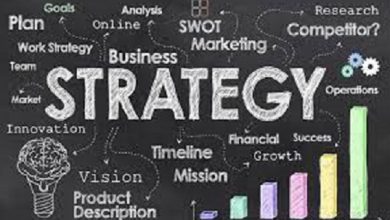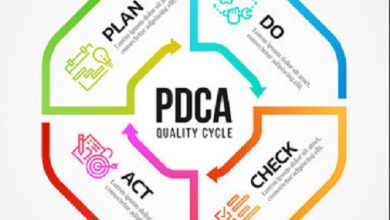Sales productivity definition its 4 Pillars and 14 Ways to Increase Sale Productivity
What is sales productivity?
The definition of Sales productivity is the ability to produce more results with fewer resources (financial and personnel). In other words, sell more with the same or less resources. To achieve this goal, companies must align the 4 pillars of productivity: processes, management, technology and people.
To make it clear, I’ll give you an example: imagine that your team has 5 sales professionals and they make 25 sales per month. Your competitor has a team of 3 salespeople who make 25 sales per month.
The conclusion is obvious, isn’t it? Your competitor is being more productive because he gets the same number of sales as you, but with fewer resources.
Therefore, productivity is nothing more than minimizing the use of resources, increasing your results.
At this point, it is important to emphasize that increased production does not mean greater productivity. This, in fact, is common thinking, but totally wrong in the business world.
The 4 Pillars of Productivity in Sales
What then would be the 4 productivity factors that drive the sales process in companies and affect the results?
With over 10 years of experience in the market, advising companies from the most diverse segments, we created a methodology on the 4 Pillars of Sales Productivity which, when analyzed, are capable of providing an accurate and systemic diagnosis of the company’s process.
Are they,
- People: This element concerns the sellers themselves. What profile is needed to conduct the negotiations? What is the daily, weekly and monthly capacity for calls or meetings? What are the skills needed to maintain effectiveness in your day-to-day work? These are answers that need to be discovered by the sales manager. Wherever there is room to motivate salespeople toward maximum operational capability, sales productivity will be better.
- Processes: a commercial team is composed of a series of processes, many of them associated with other company teams (product, legal, financial, marketing, among others). Keeping processes streamlined helps to reduce operating costs, ease the onboarding of new salespeople, and accelerate the entire sales funnel.
- Management: Strong sales leadership is essential to drive people and processes towards the best results. The role of the sales team manager is to set the pace, map market opportunities, plan and measure the KPIs needed to monitor what needs to evolve for greater sales productivity.
- Technologies: in times of Digital Transformation, technologies could not fail to be considered as a pillar to positively influence the performance of a sales team. Currently, we are well aware that many processes and steps can be replaced by automation, ensuring greater efficiency for the salesperson, who can dedicate themselves to what they really do best: understanding the customer and offering the most appropriate product or service for their business moment.
14 Ways to Increase Sales Productivity
You already know the importance of maintaining sales productivity as a priority in managing a business, and you also know that it makes all the difference to put any plan into practice to know very well the four pillars that influence the effectiveness of the team.
How about, now, to see some practical tips to really implement a performance improvement plan in the company you work for?
Below we have 14 very simple tips to be adopted, whether you are a salesperson or a company owner. Check out!
1.Find out what gets in your focus
Before starting to adopt new practices and tools, it is essential to understand what could really be undermining the productive focus of the sales team.
For this, it is necessary to take a closer look at the routine, which allows us to see what takes away concentration or consumes more time than necessary.
You may be surprised at how some seemingly insignificant points can compromise productivity.
It can be the PABX phone that always rings on the same salesperson’s desk, the layout of the desks in the office, the quality of the internet and computers and even the space destined for coffee.
It may seem silly, but imagine the damage to focus when you need to submit information to a CRM that takes time to load your pages, for example?
The temptation to take a peek on social media using your cell phone can be great, and each time this happens, it takes about 2 minutes to regain your concentration on what you were doing before. In other words, at the end of the day, the damage can be huge!
2. Have an agenda
Once you’ve seen what might unnecessarily distract your focus, it’s time to start taking action to increase sales productivity. A very important factor is having a very well-organized schedule. Okay, this may sound elementary, but it’s actually not that much.
There are still many sellers who do not have a well-established agenda that helps them achieve their goals. Adjusting days for visits in each region of the city is an example of what can be done. In large cities such as São Paulo and Rio de Janeiro, this can mean up to two more meetings in a single day!
But it is not just the organization of external meetings that can be optimized. The agenda can also be used to create blocks for each type of activity to be performed in a journey. This way, the focus is maintained, without forgetting any important activities.
And when there is a need to change the schedule, you will know very well what has been overlooked and will need more attention in the future.
3. Make priority lists
So, to ensure that the most important thing gets done first, it’s always a good idea to work with priority lists. There are several tools and methodologies to support this, just find the ones that best fit your profile as a seller. Or that of the team, if you are the team manager.
It works great to review this priority list daily, before starting work. This way, you visualize what needs to be done and have a better understanding of how much time and energy you need to spend on each activity.
4. Organize your emails
Emails are often a huge drain on time and energy for any professional. And as a salesperson, you run the risk of spending much of your work time just cleaning your inbox.
In order for this not to happen, it is essential to know how to organize your emails. Start by unsubscribe from all mailing lists that you are not interested in or that have nothing to do with your professional activity. Then start creating rules for your own email management, according to what works for you.
Some interesting practices are filtering messages according to keywords or senders or using your email task manager, turning each message into a “to-do” to be seen later.
The most important thing, however, is to limit the time you will dedicate to this type of activity. It can be 30 minutes when you arrive at the office, 30 minutes before lunchtime, another 30 on your way back, and another 30 minutes before you leave.
Normally, there’s nothing so urgent in your inbox that you can’t wait an hour or two for an answer. What is more emergency, will certainly arrive by phone call.
5. Use sales tools
Since we are talking about the technology pillar to improve sales productivity, we cannot fail to mention the importance of tools for the day-to-day activities of a commercial area.
Nowadays, with the possibility of having the office in the palm of their hand, the salesperson can use the telephone to manage their contacts, organize the agenda, digitally sign documents, scan them to send to the customer, among many other activities .
Making the most of these technologies is certainly an important step towards not only having more efficient salespeople, but your company as a whole!
6. Have a good CRM
Speaking of sales tools, CRM is undoubtedly the main one. And it’s no use having a complex system, slow or without a mobile version if the objective is to increase sales productivity.
Having intuitive tools, simple to use and, above all, accessible to the seller, wherever he may be, is essential. At this point, the Agendar is a sales improvement platform that, without a doubt, leads salespeople to reach their greatest potential!
7. Set goals for yourself
It’s hard to get anywhere when you don’t really know where to go, right? So, just as there are general goals for the sales team (number of new customers, invoicing within the period, ROI, etc), it is interesting to set personal goals also for productivity.
Of course, they need to be linked to sales goals, but they depend a lot on how you organize your daily routine. How about creating goals for new prospects, links made, proposals sent?
And not just that: you can have goals for less time wasted on emails or social networks, for completing daily activities without having to work overtime, for conducting more objective meetings, among others.
To develop goals that really make sense, go back to the first tip and find out what really affects your sales productivity.
8. Use the support teams
In many cases, it seems quicker to make the demands of another area on your own in order to get the customer back more quickly with what they need. And therein lies a big risk to sales productivity!
Leaving the activities to the specialists guarantees not only a delivery with higher quality, but also with greater efficiency.
That’s because you might even be able to deliver a contract in less time in a period of high demand to the legal department. But it will likely take longer to create this document, and it will not focus on your business activities.
In other words, this can lead to an inefficient use of the company’s resources as a whole, affecting even the decision-making process regarding new hires for the departments. So, when you can wait, leave the demand with whoever should be responsible for carrying it out!
9. Have a killer and objective speech
One of the developments that the commercial area is experiencing rapidly is the change in the approach and in the conduct of negotiations with potential customers.
In times of increasingly tight schedules, being able to hold an hour-long presentation meeting becomes increasingly rare.
But that doesn’t have to be a problem for those who sell – it can even be a way to increase productivity in sales.
Putting together a more objective speech that fits into a 30-minute meeting (or even a video conference) can help speed up your routine and sales funnel.
Of course, by no means what should be cut is the time for the potential customer to talk about their needs and demands, but rather your time talking about what is selling and its benefits.
10. Improve lead quality
Working with low-skilled leads is a huge waste of time on sales teams. The pressure for results that leads the Marketing team many times to lower the ruler on the quality of segmentation, leads to an ineffective pipeline.
And how to solve this problem? Increasingly reconciling marketing and sales goals and activities and focusing on what really matters as a result: revenue and return on investment. Especially in the B2B segment, this has much more value than the quality of leads alone.
11. Constantly evaluate sales processes
We also cite processes as an important pillar for sales productivity. So, don’t neglect each step that each potential customer goes through until closing the contract.
A good process optimization project is capable of significantly accelerating the results with measures that can even be quite simple, such as the implementation of a team of SDRs to open up opportunities, the creation of pre-formatted materials to be used in negotiations or the support from other areas at specific times of sale.
12. Automate as much as possible
Getting back to the topic of technology, it’s time to end the legwork and operational where possible! Many tools already help to automate numerous processes, such as follow up with prospects, for example.
But it’s possible to act even simpler: creating email templates that you can use with one click, sending content with marketing automation tools and customer service chatbots on the company’s website and social networks are some examples!
13. Use great content
With potential customers coming to you more and more informed, more than ever content is king. Having a collection of materials in different formats and to be used at different times in the conversation is essential for a well-prepared sales team.
The marketing team must provide presentations, articles, papers, demo videos, cases and other content to be at the right time in the seller’s hand.
But the responsibility is not just his: the sales team must take the main doubts and bottlenecks to close as an insight for this production. Besides, of course, actually making use of what is created!
14. Test constantly
Finally, the last tip is to test constantly. Yes, there is always something that can be improved, a new practice to be implemented. And you’ll never know if it’s effective if you don’t test it.
Monitor your own activities – or those of the team – and think at all times: how can I increase sales productivity according to what is unique in my market, my company and my team? Thus, we are sure that the routine will lead to a better performance!




